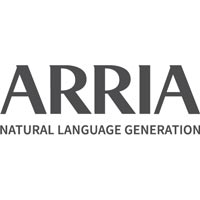How far has artificial intelligence advanced over recent years and what impact has it had on healthcare so far?
Artificial Intelligence has made huge advances in recent years in many areas, including language processing, vision, and machine learning; we are also seeing the emergence of platforms that integrate different kinds of AI, such as IBM Watson (Arria is a Watson ecosystem partner).
Within medicine, I see a lot of excitement about using many aspects of AI; of course Natural Language Generation (NLG), but also using predictive analytics to anticipate potential problems, using machine learning to build diagnostic algorithms, using natural language processing to identify relevant research findings, using computer vision to analyze scans, and using robotics to assist surgeons and other clinicians.
What is natural language generation (NLG) and how does it work?
Natural Language Generation (NLG) software systems generate narratives that summarize, explain, and communicate complex data sets to people.
The huge amount of data available in the modern world can overwhelm people; NLG humanizes the flood of data so that it helps rather than overwhelms people.
NLG systems use data analysis and artificial intelligence techniques to analyze complex data sets, and computational linguistic techniques to communicate the results of the analysis in a high-quality narrative text.

